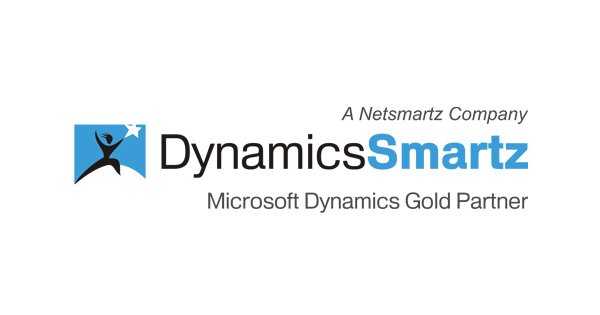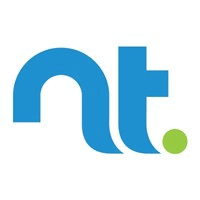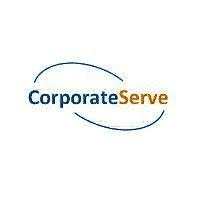What Is Microsoft Partner?
Microsoft Partner is a designation granted to firms or individuals that have met Microsoft's requirements and formed a partnership with the tech giant. This partnership enables them to market, customize, and integrate Microsoft products and solutions for their customers. Being a Microsoft Partner indicates that the firm or individual has been acknowledged by Microsoft for possessing the experience and ability to provide high-quality services and solutions utilizing Microsoft technologies.
This can involve software, hardware, cloud services, and so on. There are three levels of collaboration with Microsoft: registered, silver, and gold. Each level has its own set of standards and rewards, with Gold being the greatest level of cooperation and providing the most perks. To become a Microsoft Partner, an organization or individual must achieve specific criteria, such as technical credentials, sales success, and customer satisfaction.
This guarantees that the program only includes respectable and capable partners, giving buyers piece of mind when choose which Microsoft Partner to deal with. Working with a Microsoft Partner can provide numerous benefits to a buyer. For starters, clients have access to a wide selection of Microsoft products and services, allowing them to discover the best solutions for their specific business requirements.
Furthermore, Microsoft Partners get direct access to Microsoft's support, resources, and training, ensuring that they stay current with the latest technology and provide the finest services to their clients. Overall, engaging with a Microsoft Partner gives customers confidence that they are dealing with specialists who have the requisite skills, expertise, and Microsoft support to deliver successful projects and propel their organization ahead. When contemplating acquiring Microsoft products or solutions, seek for the Microsoft Partner mark, which acts as a seal of approval and represents a high level of experience and quality.
What Are The Recent Trends In Microsoft Partner?
The sector of Microsoft Partners is continually evolving and adapting to the ever changing technological world. As a potential buyer, you should stay up to date on the latest trends in this category so that you can make an informed decision on which partner to work with for your company needs.
Here are some of the most current trends in the world of Microsoft Partners:
1. Cloud Computing: One of the most significant changes in the IT industry as a whole is the shift to cloud computing. This shift is also evident in the world of Microsoft Partners, with many increasingly providing cloud-based solutions for enterprises. This provides greater flexibility and scalability, as well as improved security and cost-effectiveness.
2. Artificial Intelligence (AI): Microsoft has made significant investments in AI technology, and many of its partners are incorporating AI into their products. AI-powered chatbots, predictive analytics, and other tools can help businesses streamline their operations and make better data-driven decisions.
3. Software-As-A-Service (SaaS): As cloud computing has grown in popularity, so has the demand for SaaS solutions. Microsoft Partners now provide a wide range of SaaS solutions, including Microsoft Office 365, Dynamics 365, and more. These solutions provide businesses with sophisticated tools and apps without the requirement for on-premises infrastructure.
4. Cross-Platform Capabilities: In today's business environment, interoperability with many devices and platforms is critical. To address this need, Microsoft Partners now provide solutions that work seamlessly across several operating systems, including Windows, Mac, iOS, and Android. This provides greater flexibility for organizations and their employees.
5. Focus On Data Security: With increased concerns about data breaches and cyber threats, organizations have made data security a primary focus. Microsoft Partners are now putting more focus on delivering safe solutions, including encryption, enhanced threat protection, and data backup and recovery options.
Benefits Of Using Microsoft Partner
As a business owner, you may already be familiar with the technological behemoth Microsoft. Their vast variety of goods and services, which includes anything from productivity tools to cloud solutions, has become an essential component of many businesses. However, evaluating the enormous array of possibilities and selecting the ideal one for your company can be daunting. This is when Microsoft Partners enter the picture. A Microsoft Partner is an independent firm or individual who collaborates with Microsoft to deliver specialized services and solutions to clients. These partners have extensive knowledge and skill in Microsoft products, making them an invaluable resource for any organization seeking to reap the benefits of Microsoft technology.
In this buyer's guide, we'll look at the numerous benefits of working with a Microsoft Partner and how they can help you take your business to the next level.
1. Extensive Product Knowledge: Microsoft Partners receive extensive training and certifications to develop a thorough understanding of Microsoft products and services. They are always updating their abilities to keep up with the most recent changes, releases, and technological breakthroughs. This means that by collaborating with a Microsoft Partner, you can benefit from their considerable product expertise and experience to make informed decisions about which solutions are most suited to your business needs.
2. Tailored Solutions: One of the primary benefits of working with a Microsoft Partner is access to tailored solutions. They will collaborate with you to understand your business and its specific needs before recommending and implementing solutions that are in line with your goals. These tailored solutions can help you optimize operations, boost efficiency, and accelerate business growth.
3. Budget-Friendly: As a small to medium-sized business, investing in IT resources and workers can be costly. You can considerably reduce your expenditures by working with a certified Microsoft Partner. These partners provide a variety of cost-effective options, including subscription-based solutions and managed IT services, making it easier for businesses of all sizes to access cutting-edge technology and support.
4. Proactive Support And Maintenance: Proactive support and maintenance are critical components of any information technology infrastructure. By cooperating with a Microsoft Partner, you can be confident that your systems and applications are constantly analyzed, updated, and maintained for peak performance. This preventive approach avoids the chance of downtime, data loss, and security breaches, saving your company time, money, and perhaps damaging its brand.
5. Cloud Experience: With the growing need for cloud solutions, having a partner with cloud experience can help your company gain a competitive advantage. Microsoft Partners receive specific training in cloud technologies, allowing them to select and implement the best cloud solutions for your organization. This covers cloud infrastructure setup, data migration, and continuous maintenance, allowing your firm to benefit from the flexibility, scalability, and security that cloud technology provides.
Important Factors To Consider While Purchasing Microsoft Partner?
Finding a trustworthy and recognized Microsoft Partner is critical for your company's success as you navigate the competitive IT vendor landscape. A Microsoft Partner is a recognized professional who provides solutions and services for Microsoft technology and can assist you in maximizing the value of Microsoft products for your organization. But with so many possibilities, it might be difficult to select the best Microsoft Partner for your individual requirements.
To make your purchasing process easier, we've developed a list of critical considerations to consider when purchasing a Microsoft Partner.
1. Accreditation And Certification: First and foremost, verify the partner's accreditations and qualifications. Microsoft provides various tiers of collaboration based on the partner's expertise and experience in delivering Microsoft technologies. Look for Gold or Silver-certified partners, as they have demonstrated their expertise and are more likely to provide high-quality services.
2. Field Experience: An ideal Microsoft Partner should have worked with companies in your field. They should understand your industry's specific difficulties and needs, and be able to provide specialized solutions to properly meet them. This industry-specific expertise will help you meet your company objectives more efficiently.
3. Service Offerings: Microsoft Partners provide a diverse range of services and solutions. Evaluate your company's demands and ensure that the partner you chose provides the appropriate services and support for your specific needs. Some partners offer comprehensive solutions, while others focus on specialized areas such as cloud computing, cybersecurity, or data analytics.
4. Customer Feedback And References: Investigate the partner's reputation by reviewing customer evaluations and requesting recommendations from prior clients. This will give you crucial information about the partner's service quality, dependability, and client happiness. You can also request case studies or success stories to learn how they have previously benefited firms like yours.
5. Technical Assistance And Maintenance: Effective technical assistance is critical to the efficient operation of your Microsoft products. Make sure the partner provides 24-hour support and has a specialized team of professionals to handle any technological concerns that may emerge. Also, ask about their maintenance plans and how they maintain your Microsoft technology up to date.
6. Pricing And Contracts: A Microsoft Partner's pricing and contract terms can differ greatly. Some partners may charge a one-time price for a specific service, while others may use a subscription approach. Evaluate your budget and negotiate for the greatest offer that meets your company's needs and budget. Also, before signing the contract, be sure that all terms and conditions are properly specified.
7. Training And Resources: Select a partner who can provide training and resources to assist you and your team understand and effectively use Microsoft technology. This not only aids in the successful implementation of solutions, but also allows your team to reap the full benefits of Microsoft products in the long run.
What Are The Key Features To Look For In Microsoft Partner?
When choosing a Microsoft Partner for your organization, search for crucial elements that will set them apart from the competition.
Here are some things to consider:
1. Gold Or Silver Competencies: Microsoft Partners earn Gold or Silver competencies based on their experience and track record with specific Microsoft technologies. Look for partners who have appropriate competencies that meet your company's needs.
2. Experience With Microsoft Solutions: A competent partner should have a thorough grasp and experience with a wide range of Microsoft solutions to assist you in selecting the best ones for your company. They should also be knowledgeable with implementation, customization, and support for these systems.
3. Customer References And Testimonials: Request customer references and case studies to learn about the partner's previous projects and how they have assisted firms like yours. Additionally, check internet testimonials and evaluations to assess the partner's reputation and customer satisfaction level.
4. Security And Compliance: Microsoft Partners must adhere to strong security and compliance rules to safeguard the safety and privacy of your data. Look for partners who hold ISO 27001 or GDPR certifications and actively participate in Microsoft's security programs.
5. Support And Training: A competent partner should not only provide implementation services, but also continuous support and training to your team. This will guarantee that your company gets the most out of Microsoft solutions and stays up to speed on new features and upgrades.
6. Established Project Management Approaches: Look for partners who use established project management approaches like Agile or Waterfall to ensure project delivery is efficient and timely. Additionally, partners with PMI certifications or Microsoft's Sure Step approach can be relied on to offer high-quality outputs.
7. Strategic Partnership: A solid collaboration between your company and a Microsoft Partner can add significant value to your organization. Look for partners who are willing to understand your company's goals and collaborate with you to create a long-term growth and success strategy. By taking these essential criteria into account, you can ensure that you select the best Microsoft Partner for your company: one who shares your objectives, possesses the necessary experience, and can provide continuing support and value.
Why Do Businesses Need Microsoft Partner?
Microsoft is a major technology corporation that provides a diverse set of goods and services to help businesses develop and prosper. However, researching the enormous assortment of possibilities and determining the best solutions for your specific needs can be a challenging endeavor. This is when a Microsoft Partner steps in. A Microsoft Partner is a firm or organization that has demonstrated expertise and success with Microsoft technologies. These partners have obtained Microsoft certifications and accreditations, indicating their extensive expertise of the products and services they provide.
There are numerous reasons why organizations require a Microsoft Partner, and we will cover the most important ones in our buyer's guide.
1. Access To The Latest And Most Advanced Technologies: In order to keep up with the ever-changing business landscape, Microsoft is continually inventing and developing new and improved products and services. As a Microsoft Partner, they have access to the most recent technology, updates, and training, guaranteeing that their customers receive the most modern and efficient solutions.
2. Expertise And Specialization: Microsoft Partners employ a team of professionals that have completed extensive training and certifications to become skilled in certain Microsoft products and services. They have the essential abilities and understanding to assess your company's needs and recommend the most appropriate solutions, saving you time and money.
3. Tailored Solutions: Every organization faces distinct issues and requirements, so a one-size-fits-all approach to technology is ineffective. Microsoft Partners collaborate closely with organizations to understand their goals and provide tailored solutions that meet their specific requirements.
4. Cost-Effective: Directly partnering with Microsoft can be pricey for organizations, particularly small and medium-sized enterprises. Microsoft Partners provide cost-effective solutions that are suited to your budget, preventing you from wasting on needless products and services.
5. Ongoing Support And Maintenance: Technology is always improving, and businesses must maintain their systems up to date to remain competitive. Microsoft Partners provide ongoing support, maintenance, and training to keep your organization up to date on the newest trends and advances.
6. Increased Productivity And Efficiency: Working with a Microsoft Partner allows organizations to streamline their processes, improve communication, and boost productivity and efficiency. Businesses may use the proper tools and services to automate activities, increase communication, and save time and resources.
How Much Time Is Required To Implement Microsoft Partner?
The time necessary to install Microsoft Partner will vary depending on a number of factors, including the complexity of your business requirements, the extent of the partnership, and the level of customization required. The process can last anything from a few weeks to several months. One of the initial steps in becoming a Microsoft Partner is signing the Partner Agreement, which can usually be completed in a few days.
After the agreement is finalized, the onboarding process begins, which can last up to four weeks. Next, you must complete the relevant examinations and qualifications to become a Microsoft Certified Partner. This process can take several months, depending on how many exams are required. Furthermore, the time required to integrate Microsoft Partner technologies and solutions into your business operations will influence the entire implementation timetable.
This can take anywhere from a few weeks for basic integrations to many months for more complicated ones. To guarantee a seamless and timely implementation, it is critical to have a comprehensive grasp of your company's needs and goals before beginning the process. Working closely with a Microsoft expert or partner consultant can also assist speed up the implementation process and reduce the time required to become a Microsoft Partner.
What Is The Level Of Customization Available In Microsoft Partner?
When it comes to customisation, Microsoft Partner provides a variety of alternatives for tailoring their services to the individual demands of their clients. This level of personalization is one of the primary benefits of selecting a Microsoft Partner for your organization. From software development to cloud solutions, Microsoft Partners have the knowledge and resources to create customized solutions that correspond with your organization's aims and objectives.
For starters, Microsoft Partners have access to a wide range of tools and technologies, allowing them to develop personalized solutions for their clients. These partners are continually updated on the most recent improvements and advancements in Microsoft products, giving them a competitive advantage when it comes to customizing. Furthermore, Microsoft Partner offers a consultative approach, taking the time to understand your company and its specific needs. They collaborate with you to identify areas that require specialized solutions and design an effective strategy to solve them.
Furthermore, Microsoft Partners employ qualified experts that have extensive knowledge and expertise in Microsoft technology. They employ their knowledge to effortlessly customize and integrate multiple Microsoft products and services, resulting in a personalized solution for your company ecosystem. Another characteristic that distinguishes Microsoft Partners is their capacity to scale and adapt to their clients' changing demands. With a range of alternatives available, Microsoft Partners can tailor solutions to help organizations of all sizes, from small startups to major corporations.
Which Industries Can Benefit The Most From Microsoft Partner?
Microsoft Partner is a highly sought-after designation that indicates a solid collaboration between Microsoft and a company. Microsoft Partners get access to exclusive resources, training, and support, allowing them to provide their clients with high-quality solutions and services. For businesses trying to improve their operations and stay ahead of the competition, working with a Microsoft Partner can provide considerable benefits. But which sectors would gain the most from a Microsoft Partner?
1. Healthcare: With the growing demand for digital transformation in the healthcare business, Microsoft Partner provides solid technology solutions to expedite processes, improve patient care, and assure data security and compliance. Partners can assist healthcare institutions in implementing electronic health records, telemedicine capabilities, and analytics solutions to improve decision-making.
2. Retail: In a very competitive retail market, having the correct technology in place is critical to success. Microsoft Partners can assist retailers in leveraging the power of cloud computing, data analytics, and artificial intelligence to personalize consumer experiences, enhance supply chain management, and increase sales.
3. Banking: The banking business handles huge volumes of data and demands secure, dependable, and efficient solutions. Microsoft Partners can help financial institutions develop digital products, automate manual operations, and deploy data-driven risk management and compliance initiatives.
4. Manufacturing: Microsoft's cutting-edge technology, paired with a Partner's knowledge, can assist manufacturers in improving their manufacturing processes, lowering costs, and increasing productivity. Partners can help integrate Internet of Things (IoT) sensors and data analytics to improve operations, quality control, and decision-making.
5. Education: Microsoft Partner provides solutions for digital learning, improving collaboration between students and teachers, and simplifying administrative processes. Partners can help educational institutions install Learning Management Systems, virtual classrooms, and tools for personalizing learning experiences.
6. Non-Profit: Non-profit organizations frequently have limited resources and rely largely on technology to accomplish their goals. Microsoft Partners may assist non-profits in moving to the cloud, automating tedious procedures, and optimizing operations with cost-effective solutions tailored to their individual requirements.
Conclusion
After carefully analyzing the various features of being a Microsoft Partner, it is clear that this program provides significant advantages to organizations. The collaboration gives companies access to exclusive resources, training, and support, allowing them to stay competitive in the fast changing digital market. The collaboration also allows you to access into a global network of partners and customers, increasing your company's reach and visibility.
Furthermore, being recognized as a Microsoft Partner lends confidence and trust to your business, which can be an important factor in gaining new customers. The program also provides a variety of marketing and sales services to help partners display their skills and capabilities to potential consumers. This might lead to higher sales and revenue for enterprises.
Furthermore, the program's numerous competency levels enable businesses to demonstrate their specialized abilities and knowledge, making it easier for clients to discover and select the best partner for their needs. The program also promotes continual learning and growth, ensuring that partners are up to date on the latest Microsoft technology and solutions.
While there are requirements and expenses associated with being a Microsoft Partner, the rewards and possibilities provided make it a worthwhile investment for organizations seeking to establish themselves as technology industry leaders. So, whether you're a tiny business or an established enterprise, becoming a Microsoft Partner can lead to new opportunities and catapult your company to success in the digital age.






















